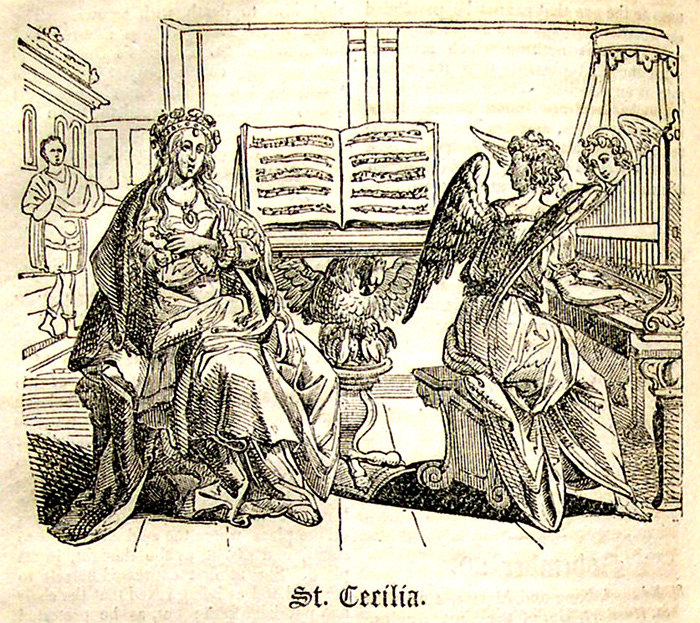St. Cecilia.
——Divine Cecìlia came,
Inventress of the vocal frame;
The sweet enthusiast, from her sacred store,
Enlarg'd the former narrow bounds,
And added length to solemn sounds,
With nature's mother-wit, and arts unknown before.
Let old Timotheus yield the prize,
Or both divide the crown;
He rais'd a mortal to the skies,
She drew an angel down.Dryden.
November 22.
St. Cecily, A. D. 230. St. Theodorus, A. D. 821. Sts. Philemon, and Appia.
St. Cecilia.This saint is in the church of England calendar, and in the almanacs. Her having existed has been doubted, but she is a saint of the Romish church, and Butler gives her life, wherein he calls her "the patroness of church music." He says, that she was married to a nobleman named Valerian, whom, with her brother Tibertius, she converted, and with them she was martyred. Various legends, and many pictures and prints, represent her as engaged in music, or listening to it from celestial performers. Hence the ode for St. Cecilia's day by Dryden, who was a catholic, concludes by saying,
"She drew an angel down."
Formerly, concerts on her festival-day were fashionable, and Pope honoured her in numbers, though "the numbers came" not to him, as to Dryden. The preceding engraving is from a design by M. de Vos, engraved by J. Sadler. Her husband is represented, allured by the harmony, entering a room, wherein she sits. According to catholic story, he found a young man playing on the organ, Cecilia described him to Valerian as an angel, and from that time she received "angels' visits."
FLORAL DIRECTORY.
Trumpet-flowered Wood Sorrel. Oxalis ubiflora.
Dedicated to St. Cecilia.
